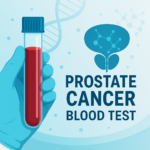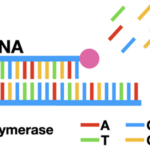Can Switching to a Vegan Diet Make You Biologically Younger?
A vegan diet may slow down the ticking of your biological clock. Recent research indicates that twins, one following a vegan diet and the other not, aged differently: the vegan aged more slowly than the omnivore.
Study Highlights on Vegan Diet and Aging
Researchers found that participants who switched to a vegan diet showed a decrease in biological age assessments, known as epigenetic aging clocks. This change was not observed in those who did not follow a specific diet. Led by Varun Dwaraka, Head of Bioinformatics at TruDiagnostic, the study involved 21 pairs of adult identical twins.
One twin in each pair adopted a vegan diet, while the other maintained their usual eating habits. For the first four weeks, they ate pre-prepared meals, and for the next four weeks, they cooked their own meals based on nutritional lessons.
By the end of the study, researchers found that vegans aged less at the cellular level than their omnivorous siblings. Additionally, they observed rejuvenation of heart cells, increased hormone production, liver regeneration, reduced inflammation, and enhanced metabolism in vegans compared to their non-vegan twins.
Key Findings
- Epigenetic Age Deceleration:
- Vegan participants showed significant reductions in epigenetic age acceleration, such as PC GrimAge and PC PhenoAge, meaning their biological age lagged behind their chronological age more significantly than their omnivorous counterparts.
- Telomere Length:
- Vegans experienced an increase in telomere length, associated with slower cellular aging. No significant changes were observed in the omnivorous group.
- System-Specific Benefits:
- The vegan diet improved several body systems, including the heart, liver, and metabolism. Inflammation markers decreased, and hormonal balance improved.
- Immune Function:
- Vegans showed changes in immune cell levels, particularly an increase in basophils, which are involved in the immune response.
- Epigenetic Biomarker Proxies (EBPs):
- Significant changes were observed in EBPs, which are markers for metabolites, proteins, and clinical values, highlighting potential health benefits of a vegan diet.
- Weight Loss:
- Vegans lost more weight on average compared to their omnivorous twins, partly due to lower calorie intake.
Long-Term Considerations
While short-term benefits of a vegan diet are evident, proper nutrient supplementation, especially vitamin B12, is crucial to prevent deficiencies. Further research is needed to fully understand the long-term effects of a vegan diet on aging and overall health.
Conclusion
This study suggests that a vegan diet can reduce biological age and offer health benefits. However, balanced nutrition and further research are essential to understand the long-term effects fully. If you consider switching to a vegan diet, these findings offer promising insights into how it might positively influence your health and aging process.
By adopting a vegan diet, you might slow down your biological clock and stay younger at the cellular level.
Reference
Dwaraka, V.B., Aronica, L., Carreras-Gallo, N. et al. Unveiling the epigenetic impact of vegan vs. omnivorous diets on aging: insights from the Twins Nutrition Study (TwiNS). BMC Med 22, 301 (2024). https://doi.org/10.1186/s12916-024-03513-w
Recent Blog Posts
-
 13 Jun 2025MTL Epitherapeutics and RI-MUHC Develop Early Prostate Cancer Blood Test
13 Jun 2025MTL Epitherapeutics and RI-MUHC Develop Early Prostate Cancer Blood Test -
 11 Jan 2025EpiAge Research Publication Signals a New Era in Understanding Biological Aging
11 Jan 2025EpiAge Research Publication Signals a New Era in Understanding Biological Aging -
 18 Nov 2024EpiMedtech Global Announces FDA Registration of EPIAGE, the First Epigenetic Age Test Registered by the FDA
18 Nov 2024EpiMedtech Global Announces FDA Registration of EPIAGE, the First Epigenetic Age Test Registered by the FDA -
 18 Nov 2024EpiMedTech Global Validates Unique epiCervix HPV Combo Test for Cervical Cancer Detection
18 Nov 2024EpiMedTech Global Validates Unique epiCervix HPV Combo Test for Cervical Cancer Detection -
 31 Oct 2024HKG epiTherapeutics’ MetaGen Genetic Risk Assessment Test Receives FDA Registration, Now Available in the U.S.
31 Oct 2024HKG epiTherapeutics’ MetaGen Genetic Risk Assessment Test Receives FDA Registration, Now Available in the U.S. -
 31 Oct 2024EpiMedTech Global Launches epiGeneComplete: A Breakthrough Genetic and Epigenetic Test for Comprehensive Health Diagnostics
31 Oct 2024EpiMedTech Global Launches epiGeneComplete: A Breakthrough Genetic and Epigenetic Test for Comprehensive Health Diagnostics -
 30 Oct 2024Enhanced Early Detection of Liver Cancer
30 Oct 2024Enhanced Early Detection of Liver Cancer -
 08 Oct 2024Are Microarrays Still Reliable? How Next-Generation Sequencing Outperforms Traditional Methods
08 Oct 2024Are Microarrays Still Reliable? How Next-Generation Sequencing Outperforms Traditional Methods



